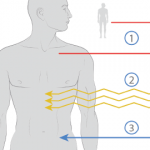Despite the innovations of new biologics and disease-modifying anti-rheumatic drugs, a large unmet need remains for patients with rheumatic autoimmune disease. Treatment remains limited for many conditions, including for conditions with a dim prognosis, such as systemic sclerosis.1 One promising treatment avenue is hematopoietic stem-cell transplantation (HSCT). Here, we provide background on HSCT for severe…





